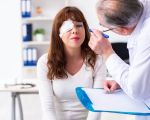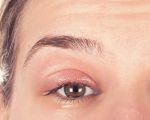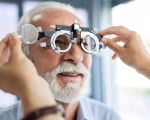
- Understanding-Eye-Allergies
- Criteria-For-Selecting-Eye-Allergy-Clinics
- Top-Clinics-Specializing-In-Eye-Allergy-Treatment
- Personal-Stories-And-Expert-Insights
- How-Eye-Docs-Can-Help-You
1. Understanding Eye Allergies: Causes and Symptoms
Eye allergies, medically known as allergic conjunctivitis, occur when the eyes react to allergens such as pollen, dust mites, pet dander, or mold spores. This immune response leads to inflammation, redness, itching, and watery eyes. Although common, the discomfort caused by eye allergies can significantly impact daily life and productivity.
It is essential to recognize the symptoms early and seek treatment from qualified professionals to prevent complications. Eye allergies can vary in severity from mild irritation to chronic conditions that require ongoing management.
Understanding the triggers and underlying causes helps patients and clinicians develop personalized treatment plans. This is why finding the best clinics for treating eye allergies is crucial—they offer specialized diagnosis and tailored therapies.
1.1 Why Timely Treatment Matters
Ignoring eye allergy symptoms can lead to worsening inflammation or secondary infections. Patients with chronic allergic conjunctivitis may also experience discomfort that disrupts sleep and concentration. Early intervention at a specialized clinic can halt progression and improve quality of life.
1.2 Common Diagnostic Approaches
Top eye allergy clinics use a variety of diagnostic tools including patient history, allergy testing, and detailed eye examinations. These assessments ensure that the allergy is accurately identified and differentiated from other eye conditions such as dry eye syndrome or infections.
2. Criteria for Selecting the Best Clinics for Eye Allergy Treatment
Choosing the right clinic is not just about reputation but also about the quality and scope of care provided. Here are key factors that define the best clinics for treating eye allergies:
2.1 Expertise of Eye Allergy Specialists
Look for clinics staffed with ophthalmologists or optometrists who have specialized training in allergy-related eye disorders. Their expertise ensures comprehensive understanding and advanced treatment options, including immunotherapy or biologic medications.
2.2 Range of Treatment Options
The best clinics offer more than just antihistamine eye drops. They provide a holistic approach—combining allergy testing, customized medications, lifestyle counseling, and follow-up care. Innovative clinics may also incorporate new therapies like allergy shots or minimally invasive procedures.
2.3 Patient-Centered Care and Support
Clinics that prioritize patient education and ongoing support empower individuals to manage their condition effectively. Accessibility, communication, and personalized care plans are indicators of superior service.
2.4 Location and Accessibility
While the quality of care is paramount, convenience also plays a role in consistent treatment adherence. Clinics with multiple locations or telemedicine services offer patients flexible options for regular checkups.
3. Top Clinics Specializing in Eye Allergy Treatment: What Sets Them Apart
Some clinics stand out due to their long-standing commitment to allergy eye care, advanced research participation, and patient satisfaction. Here’s what differentiates these leading centers:
3.1 Advanced Diagnostic Technology
Leading clinics utilize state-of-the-art diagnostic equipment, such as high-resolution ocular imaging and allergen panels, enabling precise identification of allergens and severity.
3.2 Comprehensive Multidisciplinary Teams
Top clinics often work with allergists, dermatologists, and immunologists to address systemic allergy issues, providing holistic care beyond just eye symptoms.
3.3 Proven Treatment Outcomes and Patient Testimonials
High-performing clinics showcase success stories where patients regained normal vision comfort after years of discomfort. Real case examples add credibility and help prospective patients gauge treatment effectiveness.
4. Personal Stories and Expert Insights: Real-Life Experiences with Eye Allergy Care
Consider Jane’s story, a graphic designer who struggled with seasonal eye allergies for years. After visiting a specialized clinic, she underwent allergy testing and received a personalized treatment plan combining eye drops and lifestyle changes. Within weeks, her symptoms dramatically improved, allowing her to work comfortably again.
Experts emphasize that individual response to treatment can vary, making the choice of clinic vital. Clinics that offer continuous monitoring and adaptive care provide the best outcomes for patients like Jane.
Moreover, an emerging trend shows that patient education about environmental control—such as using air purifiers and avoiding peak pollen hours—complements medical treatment effectively.
5. How Eye Docs Can Help You Find the Best Eye Allergy Clinics and Services
Finding the right care provider is often overwhelming given the variety of options available. Eye Docs offers tailored recommendations to help you connect with the most suitable clinics and specialists based on your specific allergy profile and location.
Beyond clinic referrals, Eye Docs provides access to trusted products such as allergen-blocking eyewear, soothing eye drops, and protective gear. This comprehensive approach ensures patients have all the resources needed for effective allergy eye care.
Whether you are dealing with mild seasonal allergies or complex chronic conditions, Eye Docs serves as a reliable guide, making the search for top clinics and solutions more straightforward and efficient.








